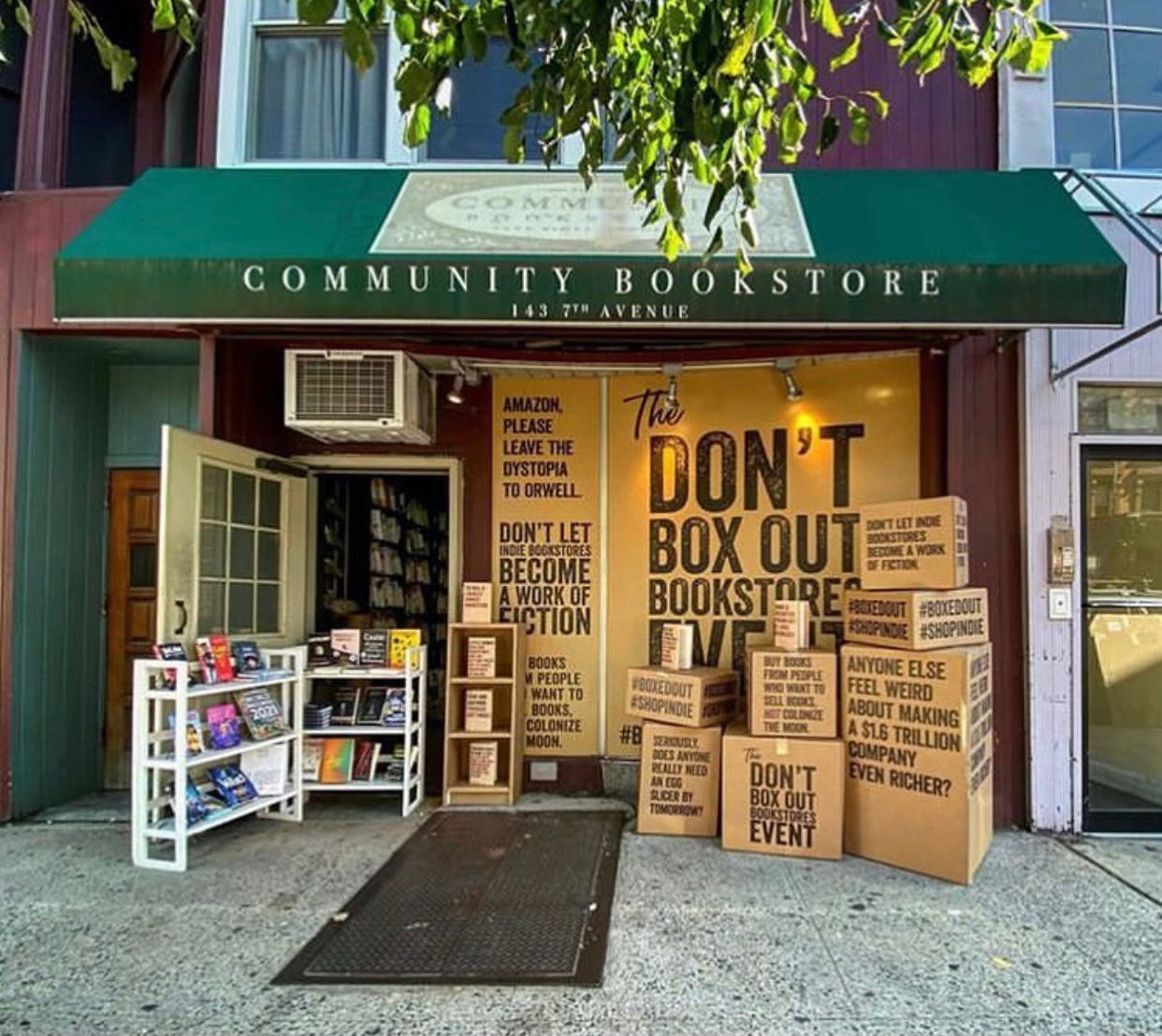Our current partner bookseller, Community Bookstore, participating in the 2020 “Boxed Out” pop-up campaign to raise awareness of Amazon’s harms to bookstores. Doug Cameron of DCX, the advertising firm that dreamt it up, said, “We’re taking that symbol—the Amazon box—and using it to increase share of mind for indie bookstores. We want the public to think about what they’re doing and understand that buying from Amazon has big repercussions for small businesses.”
Read Part One of this post here
Perhaps more ominously for those of us who are concerned about the hegemony of big tech over public discourse, some of Donald Trump’s appointees to positions governing antitrust enforcement have also expressed as part of their rationale for opposing big tech an objection in principle to content moderation, which they see as hostile to conservative messaging (see our Notebook, “Immoderate,” from September). “The FTC must protect Americans’ freedom of speech online,” FTC appointee Andrew Ferguson wrote in a statement early in December. Referring to processes used by social media companies to limit toxic content, harassment, hate speech, and disinformation, he continued “if platforms or advertisers are colluding to suppress free speech in violation of the antitrust laws, the FTC must prosecute them and break up those cartels.” He argues the government should “confront advertiser boycotts,” like those of companies that stopped advertising on the social media platform of Trump Administration advisor Elon Musk due to fear of finding their ads alongside “harmful or risky” content, because they “threaten competition.” (Boycotts were held to be constitutionally protected expression in a 1982 Supreme Court decision.) Brendan Carr, Donald Trump’s appointee for the Federal Communications Committee, shared Andrew Ferguson’s comment with an approving emoji. A policy agenda on the Trump Campaign web site promises to ban federal money from nonprofits that research mis- and dis-information and lay out criminal penalties for federal employees who seek to influence social media distribution, an issue we discussed this Notebook, “Mr. Smith and Goliath.”
Keep reading with a 7-day free trial
Subscribe to Book Post to keep reading this post and get 7 days of free access to the full post archives.




